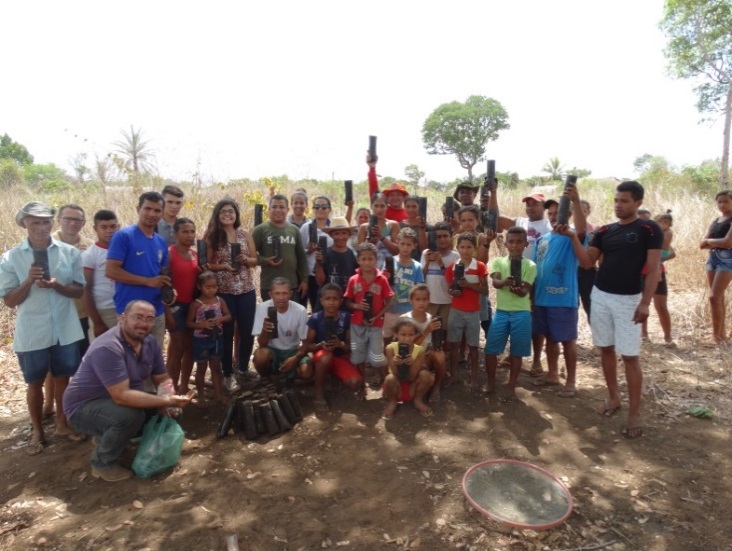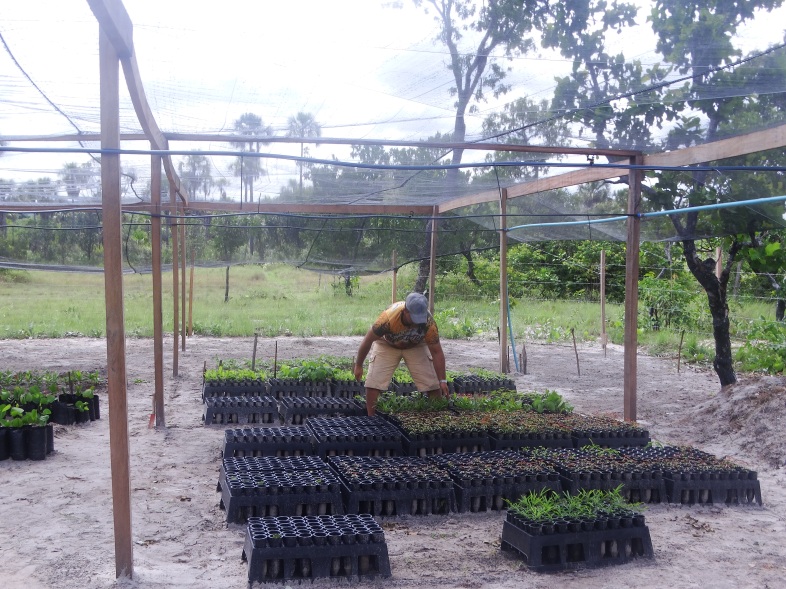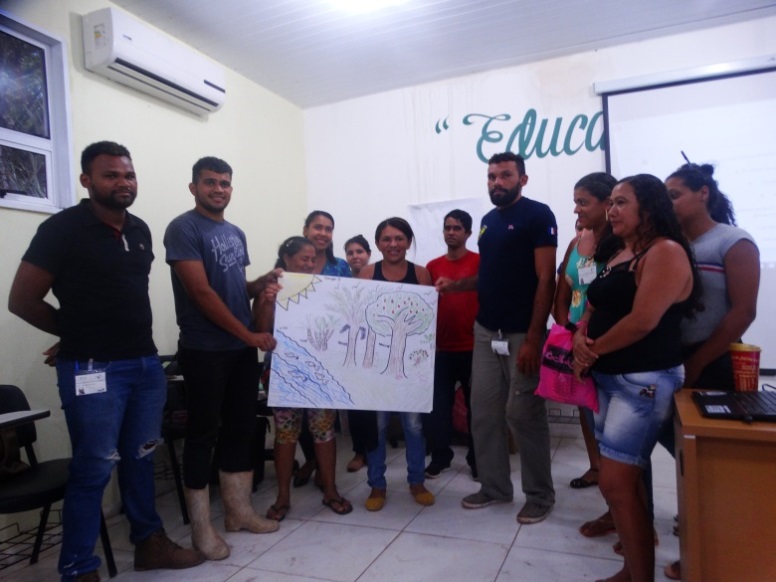Maranhão Verde Program. SDGs 1, 2, 5, 10, 11, 12, 13, 15.
Description
The Maranhão Verde Program, established by State Law 10,595 / 2017, and regulated by State Decree No. 32,969 / 2017, is designed to promote and develop projects aimed at supporting conservation and environmental recovery, involving the participation of beneficiary families, preferably, represented by the female head of the family. Each family is selected through a Call and signing of the Adhesion Term and receives the "Maranhão Verde Grant" as Payment for the Environmental Services rendered. The duration of the Program depends on the needs indicated in the analysis of the areas in which the projects will be implemented.
The objective of the Maranhão Verde Program is to generate environmental and social benefits by promoting citizenship, improving living conditions and raising the income of the population living in extreme poverty, as well as promoting environmental, social, technical and educational empowerment of families and execution of activities such as the production of seedlings and reforestation of native species. It also aims at empowering women and promoting gender equality, given that it is directed, preferably, to heads of families, who carry out the activities of the Project, receive the financial resources of the grant and function as replicators of the actions for the other members of the family.
After the selection of the areas of the Maranhão Verde Program, a project is prepared for the execution of this program. So far, the Program has been implemented through two projects, namely: "Berço do Rio Itapecuru" and "Floresta Protetora dos Mananciais," which began on 12/09/2017 and 04/06/2018, respectively. The execution takes place through a partnership with the Civil Society Organization, which are selected by Public Call, consisting of the following steps: diagnosis, mapping and prognosis of the areas to be recovered; establishment of the prioritization criteria for family selection; publication of the call and pre-selection of families enrolled in the call; mobilization and environmental education of families; signature of the term of adhesion by the selected families; training of beneficiary families; actions aimed at the conservation and recovery of the Project area, such as the planting of native seedlings, revegetation, isolation of the area to provide natural regeneration, enrichment of areas using the nucleation technique, and monitoring and evaluation of the actions by means of survey of primary and secondary data of the area, reporting, monitoring of actions, final report with on-site survey, creation of database, and other follow-up actions of the Civil Society Organizations and beneficiary families.
The Maranhão Verde Program is the first environmental public policy initiative in the State of Maranhão. It is also the first Environmental Payments Program and aims at reforestation with the assistance of families living in extreme poverty who work directly with conservation and environmental recovery. In addition, the Program is also inserted as a gender policy by prioritizing the representation of the family and receiving the "Maranhão Verde Grant" by the woman head of the family unit. The impacts of the application of the resources and the efficiency of the capacities and actions developed by the families will be determined at the end of each Project.
SDGS & Targets
Deliverables & Timeline
Resources mobilized
Partnership Progress
| Name | Description |
|---|
Feedback
Action Network


Timeline
Entity
Region
- Latin America and the Caribbean
Geographical coverage
Photos



Website/More information
Countries
Contact Information
Talissa Moraes, Assistant Secretary of Environmental Resources of the State Secretariat of Environment and Natural Resources of Maranhão
